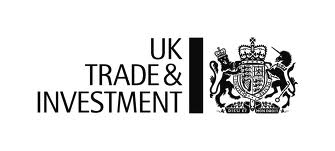The United Kingdom has announced new measures to attract overseas students and plans for new international teaching qualification based on world-renowned domestic standards. In a statement made available to journalists yesterday explained that the new measures aimed at attracting more overseas students, boosting access to global student exchanges for thousands of people, and supporting international education partnerships have been announced on 6 February by the UK Government. Following the announcement in December 2020 of the new £110 million Turing scheme, a new website went live with funding and eligibility details so that universities, colleges and schools to prepare for bids to open in Spring.
The pioneering scheme will support students from across the UK and from all backgrounds to take advantage of the benefits of studying and working abroad from September 2021. The updated International Education Strategy, led by the UK Department for Education (DfE) and the UK Department for International Trade (DIT), will work alongside the scheme, focused on supporting the education sector to build back better from the pandemic by boosting global growth opportunities. This updated strategy outlines plans for a new international teaching qualification (iQTS) so teachers around the globe can train to world-leading domestic standards and support growing international demand for high quality teaching, and also highlights recent changes including streamlining application processes and boosting job prospects for international students.
UK Universities Minister, Michelle Donelan said: “In these unprecedented times, having a proactive global education agenda is more important than ever so we can build back better from the pandemic. Our world-class education is a vital part of our economy and society, and we want to support universities, schools, colleges and all aspects of the education sector to thrive across the globe. “We are committed to making sure our students, particularly those from disadvantaged backgrounds, can benefit from studying and working abroad. Working with the British Council, we will open up the globe to our young people, and I look forward to seeing the exciting and enriching opportunities the Turing scheme will bring. I am also pleased to launch initiatives to enhance the experience of international students at our universities, from the moment they apply, to the first steps of their careers.”
UK Minister for Exports Graham Stuart MP, said: “The UK offers a world-class education. Thanks to our global reputation for excellence and strong presence in international markets, our education exports – from EdTech to transnational education – reached £23.3 billion in 2018. I’m proud to lead the Department for International Trade’s education work, as our International Education Strategy aims to help the sector recover from the impacts of the pandemic. It’s vital we help the UK’s world-renowned education industry to build back better by exporting our brilliant goods, services, skills and innovation across the globe.” Schools, colleges and universities can now access details on the Turing Scheme including funding rates and eligibility criteria to help them to prepare applications for the new scheme ahead of the applications window opening in the next few weeks. Next phase of the landmark £110 million Turing scheme unveiled, offering students of all backgrounds across the UK the chance to study and work abroad. The updated Strategy’s measures to boost the UK’s world-renowned education exports include: Launching a consultation for a new international teaching qualification, International Qualified Teacher Status (iQTS), to enable teachers around the world to train to domestic standards, supporting the sector to meet growing international demand for its high quality teacher training; Promoting UK teaching methods for supporting those with special educational needs and disabilities (SEND) internationally; Setting out priority countries for the International Education Champion, Sir Steve Smith, to work with, promoting growth for exports and addressing any barriers in the global market. UK education providers can take advantage of schemes such as UK Export Finance’s (UKEF) General Export Facility, an export guarantee scheme that can be used by firms to help cover the everyday costs linked to exporting. Further export support includes enhancing the international student experience from application to employment, connecting international demand for chartered body qualifications to UK education suppliers, and identifying specific Special Educational Needs and Disabilities (SEND) export opportunities for UK businesses.
Attracting inward investment will also form part of the sector recovery plans, with the government building on its promotion of the UK Education Technology sector and expanding into new sub-sectors, further stimulating foreign direct investment into all corners of the UK. The International Education Strategy is supported by the Government’s ‘Education is GREAT’ trade promotion campaign, which represents the UK’s offer of education provision to prospective international students or trade partners in other countries.

